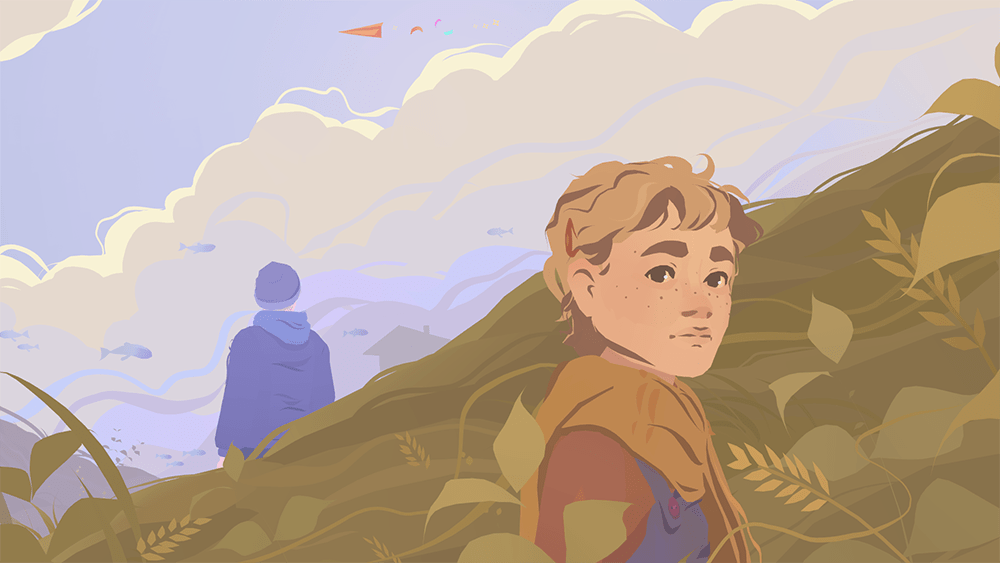
Zoe Roellin’s VR animation “Perennials” – presented at Venice Immersive and produced by Meta – will hit the VR Animation Player next.
“It makes me very happy, because it will be available to practically everyone with a VR headset,” says the Swiss artist, based in Italy, opening up about her collaboration with Ryan Genji Thomas and Goro Fujita.
“They approached me because they liked my work with [painting and animation software] Quill and asked if I wanted to pitch a project to Meta. They thought ‘Perennials’ would be a great addition to their catalog, with it being this grounded piece directed at an older audience. I just didn’t expect it to happen so early in my career.”
Sarah Malkin and Yelena Rachitsky executive produce, while Dren McDonald is responsible for the soundtrack. Joe Zieja, Natalie Miller and David Olano round up the voice cast.
“I was looking for people who could be really genuine and convey small nuances through dialogues, because a lot of this story is really low-key. It’s more about the things they are not saying,” adds Roellin.
In 17-minutes-long “Perennials,” an uncle and his young niece go to their family’s abandoned vacation home after the death of his father. They are confronted with the state of the house, but also with their own conflicting feelings.
“It’s a story about the things we pass on, generation to generation. This house seems to be crumbling and they have to figure out what to do. When I was writing the script, during the first year of the pandemic, I often felt like the world around me was slowly degrading. So how do you tackle that?”
Zoe Roellin
“This girl, Emi, goes on her own personal journey. Just like her uncle Elias. I thought it was a very interesting dynamic between two people who are trying to seem more grown-up than they are. At first, Elias is trying to replicate the way his father acted with him, but then he manages to break out of that circle. When he finally shows vulnerability and insecurity, that’s when they connect.”
Roellin also went personal when developing the project, inspired by “real events and a real place” and trying to express her “washed-out memories” through its hand-drawn look.
“My grandparents had a vacation home in Italy. My grandpa bought the land and built this place from scratch, and now they are too sick to go there. When I was in college, I went back after a long time and felt such a potent mix of emotions. It was already falling apart, but it was also a symbol of what their generation got to have. I will probably never own a house,” she says.
“I thought I could use some of VR’s strengths, like the immersion and the sense of really being somewhere. This story is all about this place and the emotions tied to it.”
Roellin, who has been developing VR for four years, is thinking beyond the festival circuit.
“It can be tricky, because in Switzerland, many people are curious about what I do, but they also don’t entirely understand it,” she says, praising the support of Virtual Switzerland director Laetitia Bochud.
“This film is very personal, but I think many people can relate to the story. Still, in the future, I don’t necessarily want to go broader. I want to get more specific, talk to niche communities and explore my identity as a queer person,” she adds.
“What I am really interested in is storytelling.”

“Perennials”














